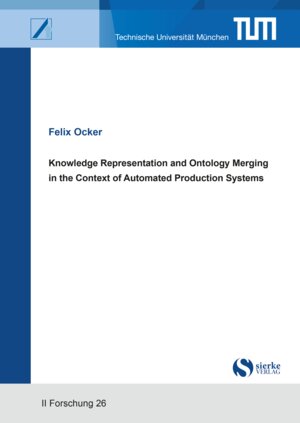Knowledge Representation and Ontology Merging in the Context of Automated Production Systems
von Felix Alexander OckerIncreasing complexity and specialization in the context of automated production systems lead to ever greater amounts of interdependent knowledge. Often, this knowledge is not formally represented, let alone properly connected. This results in problems during the design and operation of technical systems. For instance, a lack of awareness regarding the knowledge of other stakeholders is likely to lead to late and thus costly changes. Ontologies are a promising technology for formally representing and integrating the available knowledge, enabling automated support for engineers. However, engineers still struggle with creating ontologies and integrating existing ones. This thesis contributes to enabling the use of ontologies in three ways. First, it presents an approach that supports engineers in creating ontologies from available engineering artifacts. Second, a framework has been developed for merging ontologies semi-automatically. Third, several applications demonstrate the benefits of ontologies. These applications include managing available information and inconsistencies therein, providing feasibility feedback, and initializing agent-based production systems. Open-source software prototypes have been developed to evaluate the contributions. Experiments indicate that the ontology creation approach is applicable by engineers, and a quantitative benchmark demonstrated the ontology merging framework's performance. The individual applications were evaluated using minimal or industrial examples, highlighting the potential of ontologies for automated production systems.






